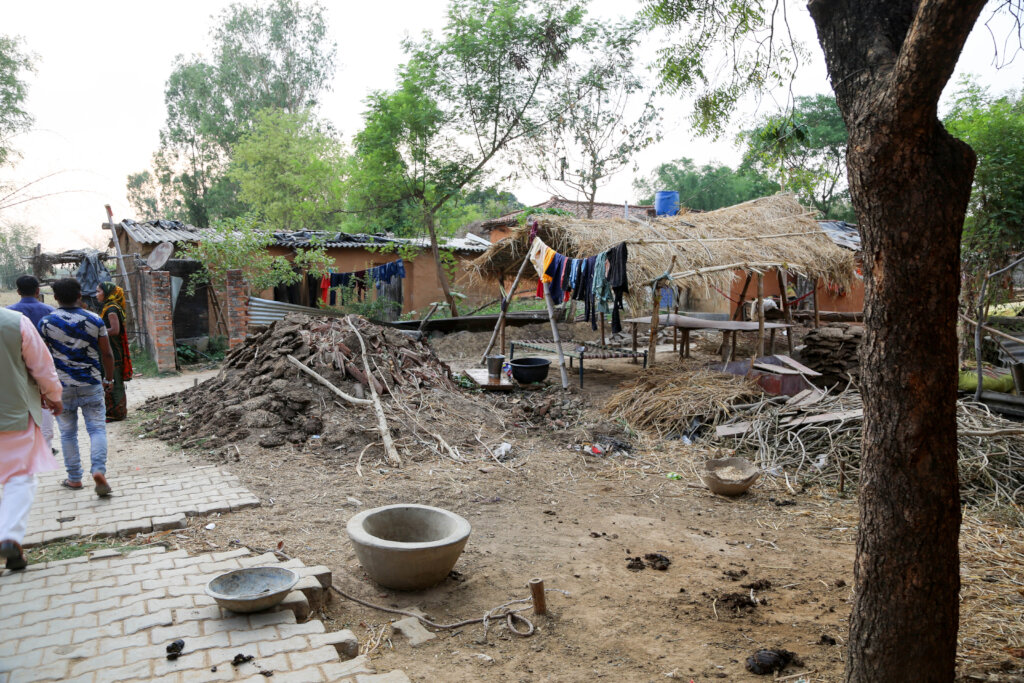By Karlheinz Neumann | Founder and project leader
Hundreds of families live in small villages in Robertsganj, Sonbhadra within a radius of up to 5 kilometers from our Keshwa Child Welfare Center, which are often widely scattered. Over the last few years, we have managed to contact 300 families and build a close relationship through countless conversations and trust-building measures. Often, many people (mostly siblings and their families) live together in one household. During our project trip in November 2024, visiting the families in the villages was one focus of our stay.
A significant number of residents in the villages are illiterate or have only a very low level of education and therefore live below the poverty line. Income is created by agricultural work, selling goods on the roadside and low-level labor work or municipal road construction. In many cases, the children have to help out to make a living. This is why some of the children in the families often do not go to school. Alcohol and cheap drugs are not uncommon, even among young people.
Our task is therefore multifaceted. The first goal is to convince parents to send as many children to school as possible. Since their homes are too far away to walk to school, we use our own school buses to pick up the children and bring them home after school. This has enabled us to register 199 children for our Keshwa Gurukul school in two years.
By surveying the family situation, we also know which families have people with disabilities. In cooperation with the government authorities, these people have at least some hopes to get support.
Through our women empowerment program and vocational training (skill program), women have the opportunity to receive training in our center in order to create a certain degree of financial independence in the family and to shape their own lives. This aspect is becoming increasingly important for women. This is a fundamental structural change in this rural region.
By combining the work in our large building with school and training program and the activities on site with the families, we create a broad and effective offer for 1,500 locals.
We cannot provide miracles, but we can implement our vision “GIVE CHILDREN A FUTURE” step by step. The next generation will significantly benefit from this.
Thank you for your outstanding support.
Project reports on GlobalGiving are posted directly to globalgiving.org by Project Leaders as they are completed, generally every 3-4 months. To protect the integrity of these documents, GlobalGiving does not alter them; therefore you may find some language or formatting issues.
If you donate to this project or have donated to this project, you can receive an email when this project posts a report. You can also subscribe for reports without donating.
Support this important cause by creating a personalized fundraising page.
Start a Fundraiser